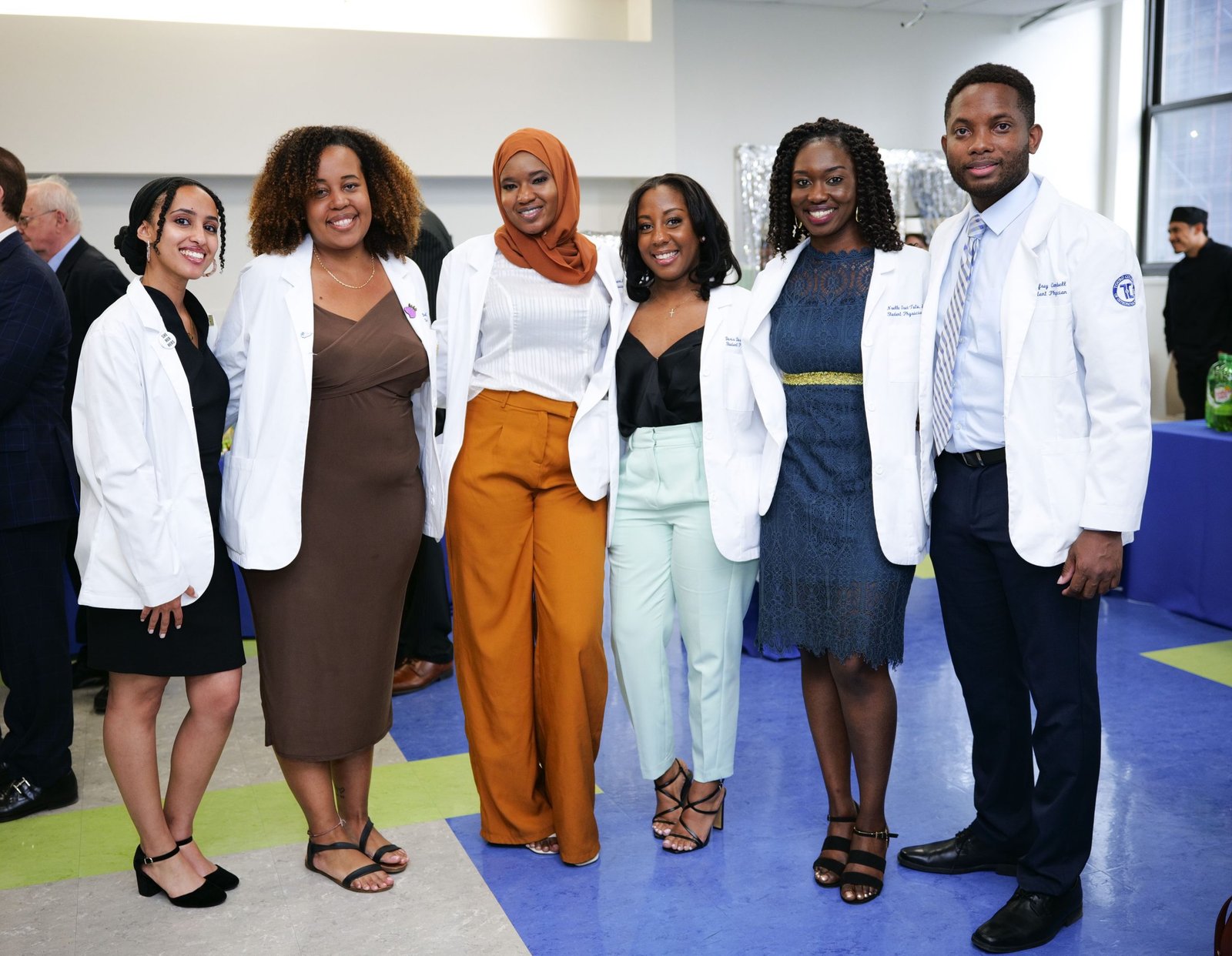Advancing equity and diversity in the health professions is highly dependent on expanding access and opportunity to related careers among underrepresented student populations. Institutions of higher education understand that such efforts must prepare students with basic scientific knowledge as well as the real-world experience and confidence required to undertake the rigor of a health care curriculum.
The diversity gap in the health care workforce is well documented. In the 2022 Urban Institute study “Racial, Ethnic, and Language Concordance between Patients and Their Usual Health Care Providers,” nearly 75 percent of White adults reported being the same race as their health care providers; the same was true of just 22 percent of Black adults. About 23 percent of Hispanic/Latino adults shared a racial, ethnic, or language background with their provider.
The study acknowledges that more research is needed, but preliminary results strongly show that having a health care provider of the same race or who speaks the same language can result in more patients seeking and receiving preventive care, better patient experiences, and higher patient-reported quality of care.
Health Professions HEED Award winners consistently prioritize recruiting and retaining historically underrepresented and first-generation students in their programs. As the Urban Institute study suggests, a best practice to accomplish this is to create enrichment programs that foster a strong educational foundation and support systems for prospective and current students.
The State University of New York at Buffalo, School of Dental Medicine offers Destination Dental School, a fully virtual program for underrepresented undergraduate or postbaccalaureate students interested in a career in dental medicine. Participants gain an understanding of the day-to-day life of a dentist and dental student. The program also helps them strengthen their dental school applications and develop their skills as researchers. This summer, 30 students from around the U.S. traveled to the School of Dental Medicine to participate in hands-on activities, mock interviews, lectures, networking, and more.
Touro College of Osteopathic Medicine is focused on increasing historically underrepresented students and first-generation students in medicine. In addition to other outreach efforts, the school offers a two-year program for high school students called MedAchieve. It features afterschool medical science enrichment for students in New York’s Harlem and Middletown communities who are interested in learning about osteopathic medicine and becoming physicians and other health care providers.
The Ohio State University (OSU) College of Nursing is engaged in the Health Equity Scholars Program, which prepares undergraduate and graduate students with advanced education and skills to help improve health outcomes in diverse populations. Conducted in collaboration with the university’s Office of the Chief Wellness Officer and the Office of Interprofessional Practice and Education, five interprofessional teams of students from the College of Nursing and across campus, along with faculty mentors, take on impactful projects such as boosting immunization awareness and resources, enhancing LGBTQ+ health care awareness and competency, and establishing an online learning community for refugees with diabetes.
In another program, the OSU College of Nursing offers summer exposure programs to encourage young people interested in nursing careers. The 2023 Summer Institute for Future Nurses, the 13th annual offering, was organized by the Office of Diversity, Equity and Inclusion and provided 31 high schoolers with an interactive introduction to various aspects of health care. Sixty-four percent of participants in each cohort were from underrepresented ethnic and racial groups, and 19 percent identified as male — a population underrepresented in nursing. Participants attended lectures, engaged in hands-on activities in nursing skills labs, and attended panel discussions.
The Preparatory Optometry Program (POP) at Nova Southeastern University College of Optometry helps students evaluate their readiness and demonstrate their potential academic ability to successfully complete the professional optometry program. Along with fellow optometry students and those in other health profession disciplines, they preview the demands of the curriculum while studying basic medical sciences. POP provides a unique platform to assist underrepresented students in the pursuit of an optometric education and strives to ensure their success in the program.
University of California, Riverside School of Medicine (UCR SOM) is one of four California Medicine Scholars Program Regional Hubs of Healthcare Opportunity (RHHO) by the Foundation for California Community Colleges. The purpose of each RHHO is to increase the number of community college students pursuing medicine to help address the shortage of physicians throughout California. With existing workforce infrastructure for pathway programs and support from the foundation, UCR SOM established the Inland Empire regional hub, which initially included three community colleges, two four-year institutions, and several community partners. UCR SOM has already expanded its community partnership to include an additional three community colleges and continues to grow this network. The program is designed to expose students from these partner institutions to a career in medicine early in their academic journey so they might ultimately work with underserved regions. Through intentional support structures at each school, the students receive the assistance needed for them to persist.●
This article was published in our November/December 2023 issue.




















